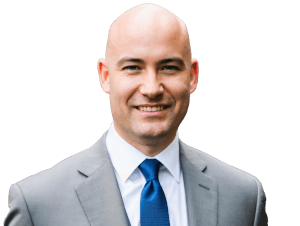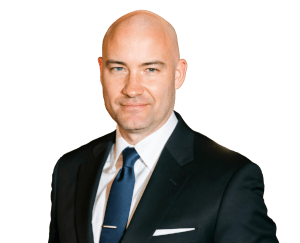
No, bedsores are not always a sign of nursing home neglect. These wounds can absolutely point to poor care, but they also develop quickly in fragile patients despite proper attention.
An Atlanta bedsores lawyer often hears from loved ones who feel uncertain about what a bedsore means and what steps to take next. The presence of a sore matters, and so does the response from staff, the preventive measures already in place, and the attention given to stop the condition from worsening.
Understanding how and why bedsores form can help families make informed decisions about a loved one’s safety in a nursing home or assisted living facility.
What Bedsores Reveal About Care in Atlanta Facilities
Bedsores, also called pressure ulcers, develop when blood flow to the skin is cut off for long periods. Immobile residents face the highest risk because they cannot shift positions without help.
In a healthy care environment, staff move residents regularly, monitor high-risk areas like heels or hips, and treat redness before it turns into an open wound. These practices show that staff understand both prevention and early intervention.
An Atlanta nursing home abuse lawyer reviews whether caregivers followed these steps. If a facility failed to turn a resident, ignored early signs, or left wounds untreated, the presence of a bedsore can reflect neglect.
Early Signs Families Should Look For
Most bedsores start small. Family members may notice red patches that do not fade when pressed or warmth and swelling around bony areas.
A resident may also complain of pain or tenderness. These complaints should always prompt an immediate check of the skin by trained staff. Open sores that worsen without treatment raise the most serious concerns.
Early recognition of these symptoms often prevents severe infections. Families who visit frequently and ask caregivers direct questions about wound care gain a clearer picture of the attention their loved one receives.
Stages of Pressure Ulcers
Bedsores progress in four stages. An Atlanta bedsores attorney often reviews medical records to understand which stage a client’s loved one reached and how quickly.
The stages include:
- Stage 1: Red skin that feels warmer or firmer than the surrounding tissue
- Stage 2: Shallow open sore or blister
- Stage 3: Deep wound extending beneath the skin
- Stage 4: Severe damage that may reach muscle or bone
Facilities must recognize sores early, provide immediate treatment, and prevent wounds from advancing into dangerous conditions.

Medical Conditions That Increase Risk
Bedsores do not always indicate negligence. Certain health conditions increase the risk, including diabetes, vascular disease, and malnutrition, which can limit healing.
A resident recovering from surgery or confined to bed for long stretches may develop sores even when caregivers follow proper procedures. The difference lies in how staff respond once those sores appear.
Quick intervention, referrals to wound care specialists, and adjustments in daily care plans all show that the facility takes the risk seriously. Neglect often becomes clear when those measures are absent.

Why Bedsores Can Be Life-Threatening in Atlanta Care Homes
A small sore can appear minor at first, yet untreated ulcers often progress into severe infections. Elderly residents face a heightened risk of sepsis, cellulitis, or bone infections when bacteria spread from an open wound.
Once these infections take hold, hospitalization and painful treatments may follow. Elderly residents often struggle to recover, and some do not survive the complications. Families can feel blindsided when a small sore leads to such serious outcomes.
Families who notice worsening sores should request medical records, ask about wound care protocols, and consider moving their loved one to a safer environment. Taking these steps provides a clearer picture of the care being given and may prevent the condition from becoming life-threatening.
Proving Neglect with the Help of an Atlanta Bedsores Attorney
An Atlanta bedsores attorney reviews medical charts, care plans, photographs, and testimony from wound care experts to see how a sore developed. Each piece of evidence builds a clearer picture of the resident’s treatment.
Medical charts show when the sore first appeared. Care plans reveal whether repositioning schedules or wound checks existed. Photographs and expert opinions add another layer of detail.
This information creates a timeline of care. When staff ignore early signs or fail to treat wounds properly, the evidence can demonstrate when bedsores are a sign of nursing home neglect and give families grounds for legal action.
Legal Options for Families in Georgia
Families in Atlanta and across Georgia have the right to hold facilities accountable when neglect harms a loved one. Possible outcomes may include compensation for medical expenses, relocation costs, or damages for pain and suffering.
The first step involves reviewing the facts with someone who understands both medical records and facility responsibilities. This step can reveal whether the care home failed to meet its obligations.
Even when legal action is not the best option, relatives often gain peace of mind from guidance that safeguards a loved one’s safety and dignity.
Taking Action When You Suspect That Bedsores Are a Sign of Nursing Home Neglect
When you see signs of neglect, act quickly. Families can document sores with photos and dates, request copies of medical and nursing records, and report concerns to Georgia’s Department of Community Health.
Independent medical evaluations also help confirm whether sores developed because of poor care or unavoidable medical conditions. These evaluations play an important role in both care planning and legal cases.
By taking these steps, families protect their loved ones’ health and create a clear record in case their loved one’s bedsores are a sign of nursing home neglect.
How Schenk Nursing Home Abuse Law Can Help
If you worry about whether a loved one’s bedsore reflects neglect, answers are within reach. Families deserve clear information and honest guidance when questions about care arise.
At Schenk Nursing Home Abuse Law, Rob Schenk brings 17 years of legal experience, including 9 years focused exclusively on nursing home neglect and abuse. He has recovered millions for families across Georgia.
When you call, you speak directly with him. Even if he cannot take your case, he offers resources and support so you leave the conversation with a clearer understanding of your options. Give our Atlanta bedsores lawyers a call today.



